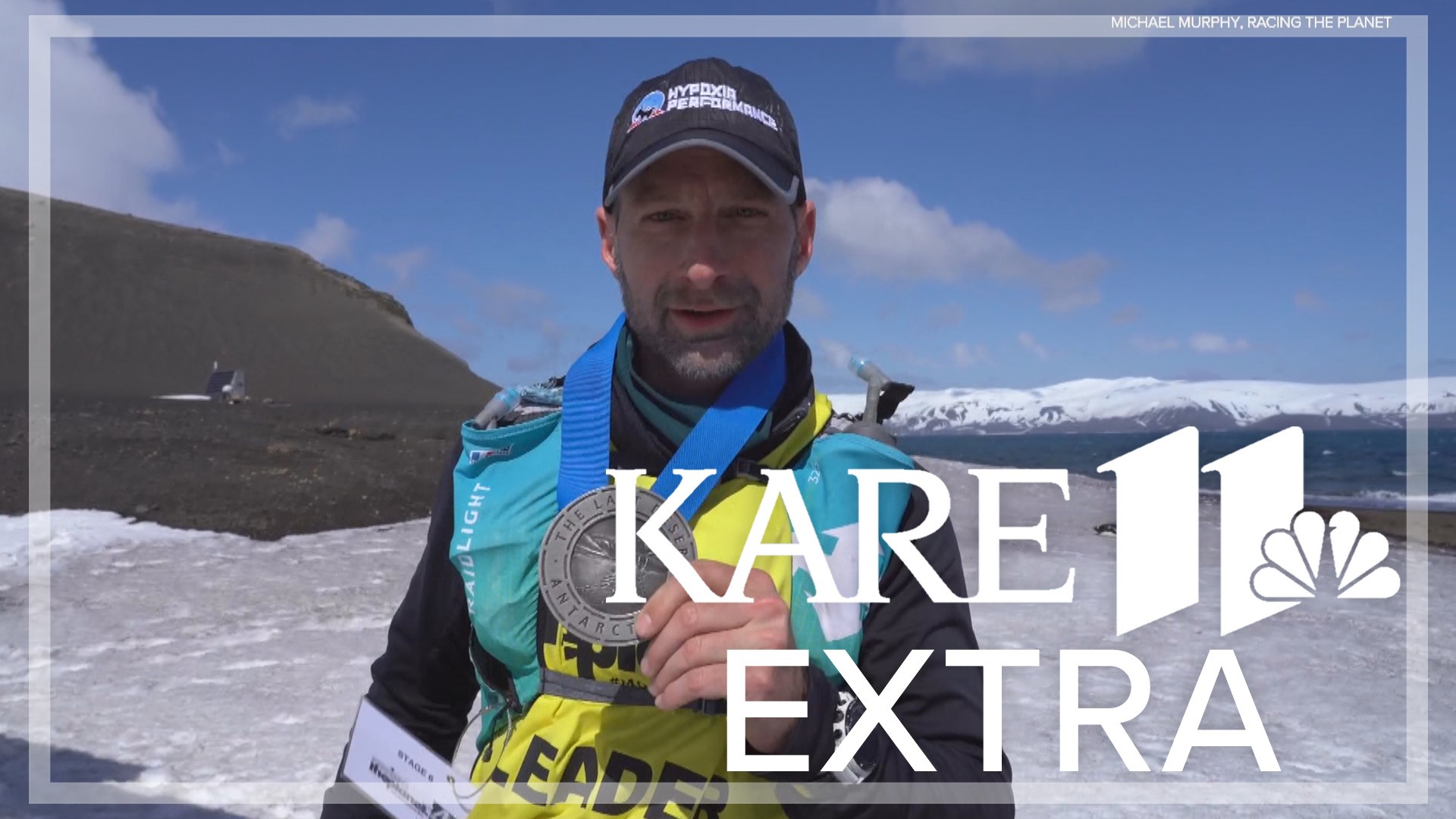ST PAUL, Minn. — Lt. Col. Matt Cavanaugh recently retired from the U.S. Army. While he was still serving, in 2021, he donated a kidney at Walter Reed National Military Medical Center in Bethesda to a stranger in Seattle.
"My life's no different than it was before donating," Cavanaugh said. "I still drink. I still run."
In fact, the very next year, he ran four ultramarathons abroad.
"They were in the world's deserts so one was in the Namib Desert in Namibia," he said. "I'm excited to say that I won the race in Antarctica — I'm going to put that on my tombstone — and I finished the series as the fastest American ever to race that series."
Now Cavanaugh and a partner, Hilary Baude, are running 12 marathons across the U.S. with a goal of completing each race in under three hours.
So far, they're halfway there. The Medtronic Twin Cities Marathon on Oct. 1 will be their seventh marathon. They plan to complete the rest by the end of this year.
"Being there to run in that marathon is meant to demonstrate to others that you can donate a kidney, you can save a life, and you can go right back to doing all the things you do right now," said Cavanaugh, who lives in Utah with family but grew up in St. Paul. "There are thousands in the Twin Cities alone dying of kidney failure right now and we don't need a miracle. The miracle is walking around in all of us. We've been given two kidneys and we only need one healthy kidney to live a full life."
The One Kidney, 12 Marathons challenge is organized by National Kidney Donation Organization, where Cavanaugh is president and CEO. The nonprofit aims to inform potential donors about what to expect before, during and after surgery. Cavanaugh says its thousands of members come from a variety of backgrounds. They're not all runners. The point is, most kidney donors are able to get back to doing whatever it is they loved doing before the operation — if not more.
"Everybody tends to focus on the subtraction part of it, you know, what gets taken out of the body but what they miss is what gets put in and it's this continuous psychological uplift," Cavanaugh said.
Donors are also placed at the top of the list should they ever need a kidney donation themselves, but Cavanaugh says that's rare.
He plans to partner with the University of Minnesota Transplant Center during the Twin Cities Marathon. To see if you're qualified for kidney donation, visit 1K12.org.
Watch more local news:
Watch the latest local news from the Twin Cities and across Minnesota in our YouTube playlist:

